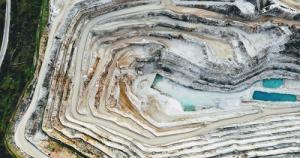
The progress of the 2030 Agenda for Sustainable development hinges on the availability of natural resources and a transition to sustainable means of their production and use. Minerals and petroleum provide the raw materials needed for the economy. While a low-carbon economy requires a wide variety of mineral resources, petroleum will still be required during the transition to more sustainable forms of energy.
The United Nations Framework Classification for Resources (UNFC) is a global standard for sustainable management of natural resources such as minerals, petroleum, nuclear fuels, anthropogenic resources, renewable energy, geological storage and groundwater. It will be applicable as well to future fuels such as hydrogen and ammonia. UNFC makes it possible for countries and regions to manage their overall resource base as an integrated whole, ensuring environmental-social-economic viability.
UNFC’s supplementary specifications for minerals and petroleum are provided to ensure accurate and consistent estimates of energy and raw material resources. These specifications support attainment of the Sustainable Development Goals as relevant to the minerals and petroleum sectors. The specifications were endorsed by the UNECE Committee on Sustainable Energy at its 30th Annual Meeting, 22-24 September 2021.
The UNFC supplementary specifications have been published at a time when having a social contract to operate for the minerals and petroleum industries has become essential. Environmental, Social and Governance (ESG)-focused investing is on the rise. ESG investments require social, environmental, and economic benefits to be apparent. The application of UNFC makes this alignment possible.
Based on UNFC, UNECE’s Expert Group on Resource Management is developing a United Nations Resource Management System (UNRMS) to provide a dynamic framework for sustainable supply of resources. UNRMS applies a holistic framework to the sustainable management of resources, one that considers the full life cycle of resources, thus promoting circularity.
“UNFC’s supplemental specifications for minerals come when their demand is expected to increase as a consequence of the ongoing sustainable transitions in the energy, transport and digital sectors,” said Johann Gotsis, GlobalRock GmbH Germany and Former Chair of the EGRM Minerals Working Group. “We will have to ensure that the production of minerals is sustainable and that we secure the public acceptability of operations.”
Global interest in the application of UNFC and UNRMS continues to grow, with the African Union recently approving UNFC-African Minerals and Energy Classification and Management System (AMREC) as the African continental system. The UN policy brief on Transforming Extractive Industries for Sustainable Development calls for the application of UNFC and UNRMS to ensure social acceptability of natural resources.
“The UNFC supplemental petroleum specifications provide a unique focus that considers a project’s technical feasibility along with its economic, environmental and social viability to deliver greater transparency,” underlined Professor Satinder Purewal, Imperial College London and Chair of the EGRM Petroleum Working Group. “Further recommendations on quality assurance and quality control for petroleum-specific functional competencies and ethical standards are provided separately.”
To support the effective adoption and implementation of UNFC and UNRMS, a number of International Centres of Excellence on Sustainable Resource Management (ICE-SRMs) are being considered by countries in the EU, as well as by the Russian Federation, Kazakhstan, Mexico and China.
For more information on UNRMS: https://unece.org/sustainable-energy/unfc-and-sustainable-resource-management

